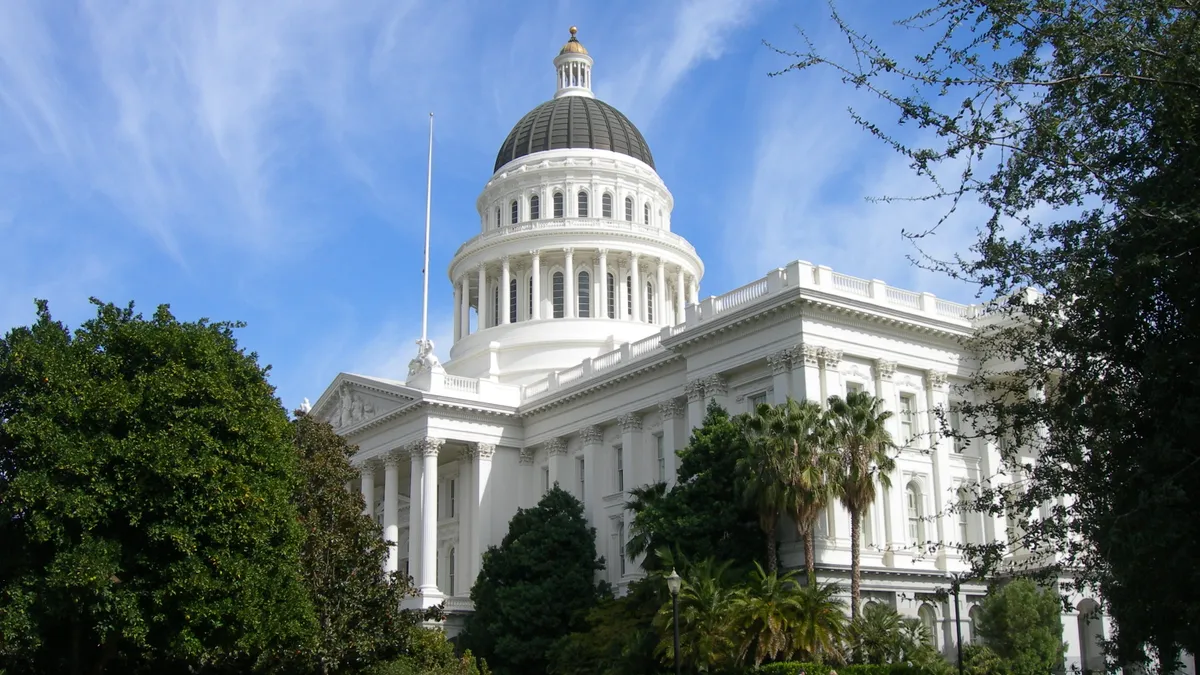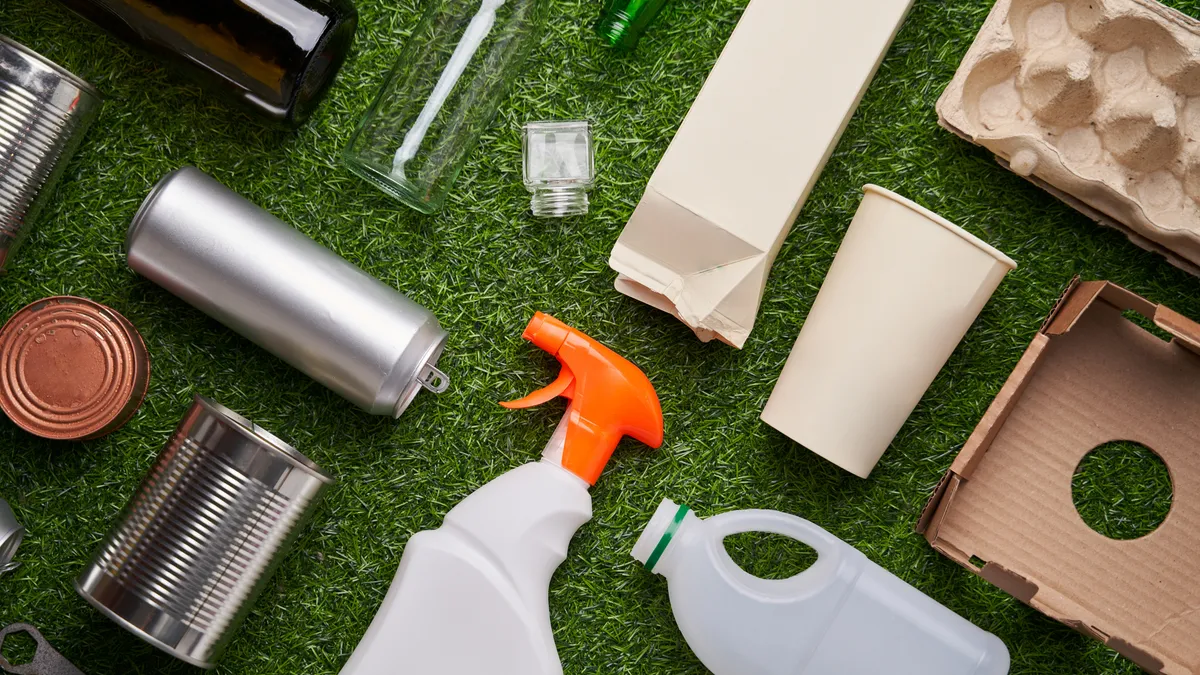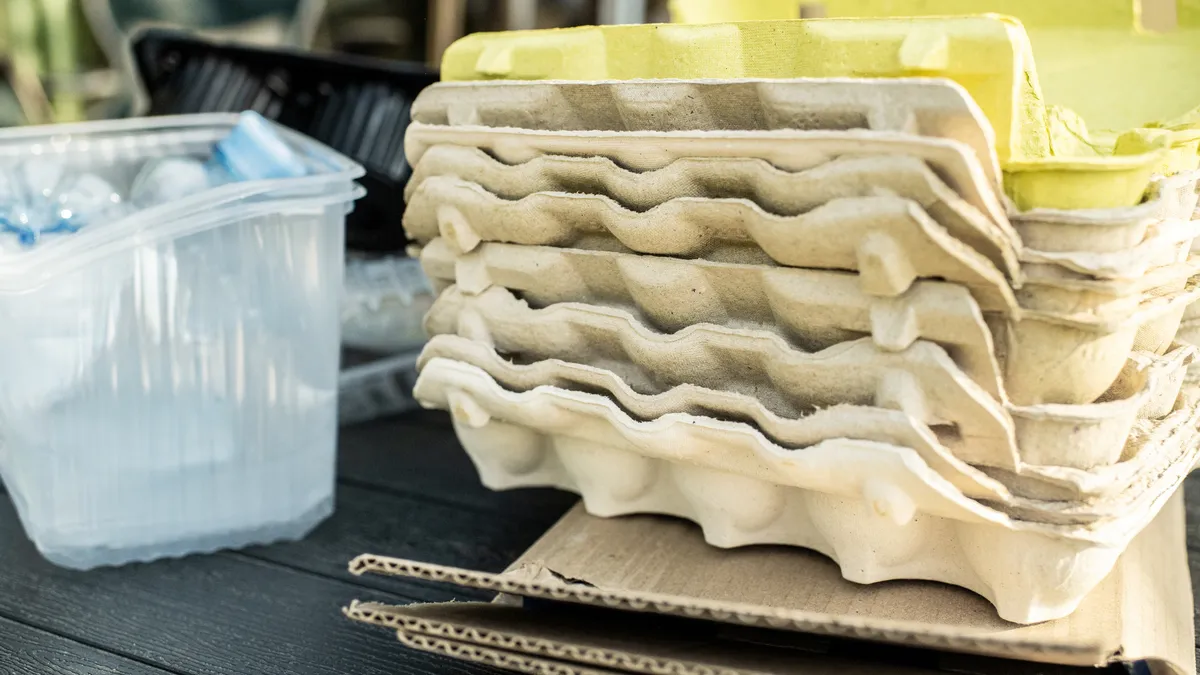California’s legislative session adjourned on Aug. 31, sending some bills with notable packaging implications to Gov. Gavin Newsom for a decision by Sept. 30.
| Bill number | Topic | Status |
| SB 1053 | Plastic bag ban update | Passed |
| AB 660 | Date label standardization | Passed |
| SB 1147 | Microplastics | Passed |
| AB 2761 | Toxics in packaging | Held in Senate committee |
| SB 1231 | Packaging EPR updates | Held in Assembly committee |
Legislature tightens reusable bag loophole
California’s Senate and Assembly passed high-profile bills that would change the types of carryout bags that grocers, convenience stores and other such retailers can offer.
In 2016, California voters passed a ballot proposition to uphold a ban on sales of certain single-use plastic carryout bags. An unintended consequence was a proliferation of technically reusable bags made from thicker plastic film, which led to more plastic use.
Bills this year sought to correct that issue by tightening the definition of reusable bags. Stores may offer recycled paper bags for at least 10 cents.
The updated legislation’s goals include to “support and reflect the will of California voters who voted to ban the distribution of plastic carryout bags at stores.” It aims to incentivize consumers to bring their own reusable bags, eliminate plastic film carryout bags from grocery store distribution, increase the recycling of paper carryout bags and ultimately lower plastic pollution. The law would take effect Jan. 1, 2026. Additionally, two years later, the threshold for a “recycled” paper bag would rise from 40% recycled material to 50%.
Supporters included the California Grocers Association and more than 70 environmental organizations. Opponents included the American Forest and Paper Association, the Association of Plastic Recyclers and the American Recyclable Plastic Bag Alliance, which represents plastic bag manufacturers and recyclers.
“California’s move to ban thick single-use plastic bags at grocery store checkouts is a win for our coasts and communities,” said Christy Leavitt, Oceana’s plastics campaign director, in a Friday statement. “Plastic bags are one of the deadliest types of plastic to ocean wildlife.” Oceana urged continued action from the state legislature on plastic.
The Responsible Recycling Alliance — a group launched by recyclers EFS Plastics, Merlin Plastics and PreZero US in June — opposed companion bills AB 2236 and SB 1053. In a press release Friday, the group “shared its deep disappointment following the California State Senate’s and Assembly’s vote to send AB 2236 and SB 1053 to Gov. Gavin Newsom for approval.” The group argues that plastic recycling programs are improving in the state, thanks in part to “critical infrastructure that has been built over the last decade.”
The group previously said it supports integrating the bags into the Plastic Pollution Prevention and Packaging Producer Responsibility Program created by SB 54, California’s packaging EPR law.
Food date labeling standardization gets closer to reality
Date labeling reform has gained traction as an idea to reduce food waste, though such policies haven’t been widely put into practice in the United States.
Both the U.S. Food and Drug Administration and the U.S. Department of Agriculture Food Safety and Inspection Service have recommended voluntary use of the “best if used by” label. A food date labeling bill introduced in Congress in 2023 has not advanced. Date labeling repeatedly came up in the National Strategy for Reducing Food Loss and Waste and Recycling Organics finalized this year by FDA, USDA and EPA.
California’s final bill text stated that dates on packages or containers ought to reflect “the date by which the product should normally be used to ensure consumer quality.”
“BEST if Used by” or “BEST if Used or Frozen by” would be printed to indicate the quality date, while “USE by” or “USE by or Freeze by” would be used to indicate the safety date. It would prohibit use of the term “sell by.”
The bill passed the Senate in a 61-14 vote on Aug. 28. Food manufacturers, processors and retailers would be required to comply come July 1, 2026.
Lawmakers support study of microplastics in bottled water
California’s Office of Environmental Health Hazard Assessment would study health effects from microplastics in drinking and bottled water, providing biennial updates, under SB 1147.
Assembly amendments resulted in removing proposed requirements for water bottling plants to report to the California Department of Public Health about microplastics found in source and final bottled water. It also removed a requirement for California’s water board to set a primary drinking water standard.
Supporters included California Environmental Voters and Californians Against Waste. There was no opposition recorded. The Senate passed the bill 33-4 on Aug. 29.















